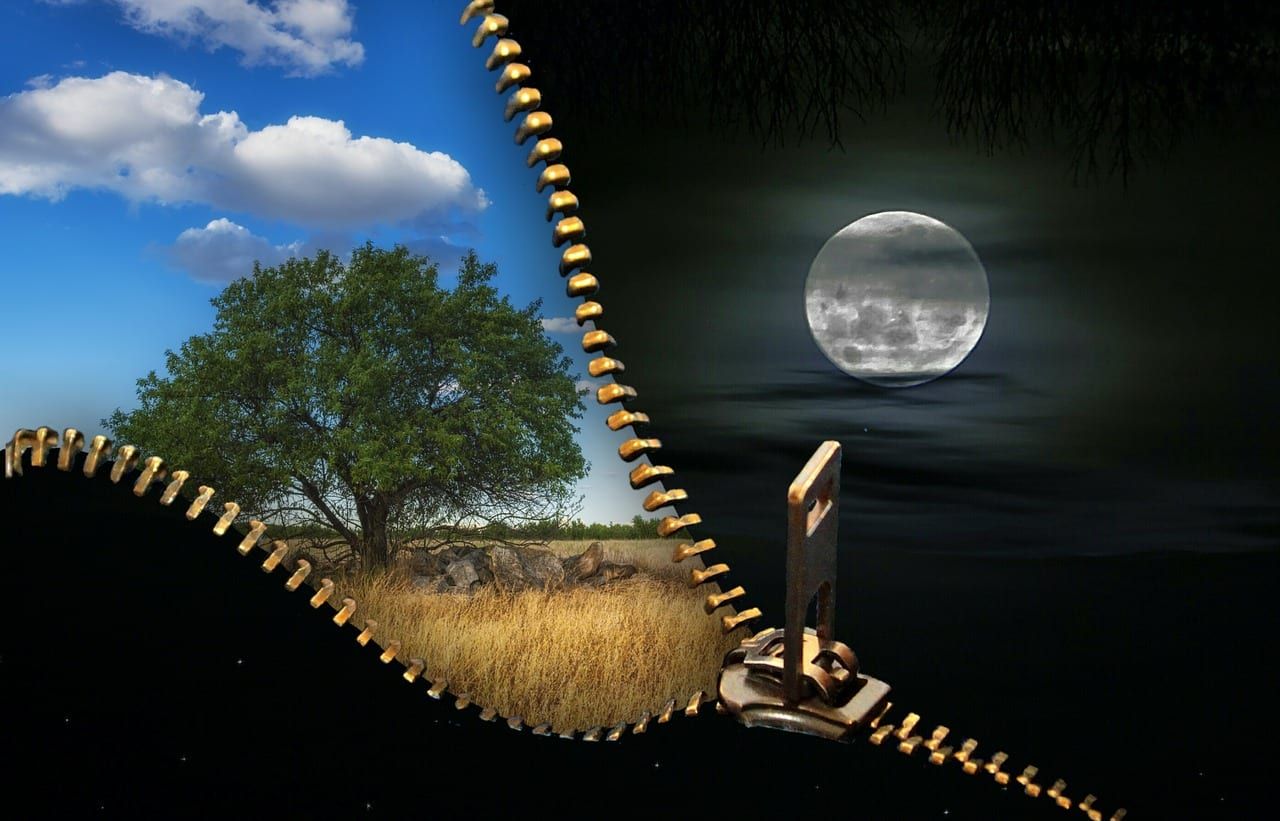In The Name of Allah, The Most Merciful, The Bestower of Mercy.
Allah, The Most High, said:
يَـٰٓأَيُّہَا ٱلَّذِينَ ءَامَنُواْ كُونُواْ قَوَّٲمِينَ بِٱلۡقِسۡطِ شُہَدَآءَ لِلَّهِ وَلَوۡ عَلَىٰٓ أَنفُسِكُمۡ أَوِ ٱلۡوَٲلِدَيۡنِ وَٱلۡأَقۡرَبِينَۚ إِن يَكُنۡ غَنِيًّا أَوۡ فَقِيرً۬ا فَٱللَّهُ أَوۡلَىٰ بِہِمَاۖ فَلَا تَتَّبِعُواْ ٱلۡهَوَىٰٓ أَن تَعۡدِلُواْۚ وَإِن تَلۡوُ ۥۤاْ أَوۡ تُعۡرِضُواْ فَإِنَّ ٱللَّهَ كَانَ بِمَا تَعۡمَلُونَ خَبِيرً۬ا
O you who believe! Stand out firmly for justice, as witnesses to Allah; even though it be against yourselves, or your parents, or your kin, be he rich or poor, Allah is a Better Protector to both (than you). So follow not the lusts (of your hearts), lest you may avoid justice, and if you distort your witness or refuse to give it, verily, Allah is Ever Well-Acquainted with what you do. [An-Nisaa. 135]
Imam Ibn Al-Qayyim, may Allah have mercy upon him] said:
Allah, Glorified be He and free is He from all imperfections, commanded His servants to stand out firmly for justice on behalf of everyone – be it an enemy or an ally, and the affair that is most worthy of being established with justice are the statements and methodology related to the commands of Allah as well as everything that Allah has (revealed in the Qur’an and the authentic Sunnah). Therefore, to establish these affairs based on desires and disobedience is contrary to Allah’s command and a negation (i.e. either intentionally or unintentionally) of that which Allah’s Messenger [peace and blessings of Allah be upon him] was sent with. The establishment of justice is the responsibility of those entrusted with the task of conveying Islam after the death of the Messenger, and this task cannot become a reality unless one establishes it based on pure justice and sincerity to Allah- (sincerity) based on Allah’s Book, to Allah’s Messenger (by adhering to his guidance), and sincere dealings and advice when dealing with Allah’s servants. These people are the true inheritors (i.e. inheritors of the knowledge left behind by the Prophets), but not that one who merely makes his companions, sect, and path the determinant of truth and the distinction between (truth and falsehood) by showing enmity to the one who opposes him and allies with the one who agrees with him, merely based on being opposed or agreed with, because where is that command to stand out firmly for justice on behalf of everyone, even though standing out firmly for justice is the greatest command and obligation! [1]
Al-Allamah Rabee Bin Hadi, Al-Mad’khali, may Allah preserve him, stated:
The seeker of truth is not swayed by admiration or reverence for prominent figures when it comes to following truth, fairness and justice; for indeed, the truth is most deserving to be followed, and it is not permissible to drop the proofs for this or that great man. The principle of a just person, the seeker of truth, is always:
قُلْ هَاتُوا بُرْهَانَكُمْ إِن كُنتُمْ صَادِقِينَ
Say, “Bring forth your proof, if you are indeed truthful.” [Al-Baqarah 111] [Majmu 8/81]
Falih Al-Harbi, may Allah rectify him
Al-Allaamah Rabee Bin Hadi Al-Mad’khali, may have mercy upon him, stated:
When affairs escalated, and during this escalation that led to the splitting, I received some papers from a book that had been transcribed from his tapes titled ‘Al-Musaara’ah’. I read those papers and came across – in them – terrible insults, ignorance, destructive judgments and a corrupt premise. I discussed some of what is in those papers with the utmost kindness and care, asked him to return to the truth in the hope that Allah might benefit him through it, so that the Salafi youth would be relieved of the causes of disunity and splitting. I sent the first advice to him in private, but he did not respond to this gentle request aimed at stopping the trial and uniting the Salafi youth.
Then, after about a month and a half, I sent him and some of his friends the second advice- in private and not openly, despite the fact that he and those who supported him rebuked those who exercised patience and gave advice, and considered that (patience and advice) to be tantamount to negligence and an act of weakening the (sound principles, stances).
He and his clandestine group entered the dark tunnels, presented their arguments in a particular way, weakening the (sound principles), defending (themselves) with lies, obscuring (matters) and insulting – through gestures and open declaration – at everyone who spoke the truth; rather the insult by some of them extended to belittling Imams of Jarh Wat-Tadeel and their fundamental principles. Therefore, now it is necessary to clarify some of what I discussed in the two advices, which I had previously overlooked.
Falih had been rushing into (unjustified) elimination and declaring people Mubtadi’ah, thus, some youth asked him for proofs, but the proofs sought from him were not found with him. Then he resorted to the invention of a principle by removing Tabdee (the ruling related to declaring a person a Mubtadi) from the principles of the Imams of Al-Jarh Wat- Tadeel (the carriers of the science of criticism and commendation), and differentiated (in the science of criticism) between the narrators of hadith and (when) declaring a person a Mubtadi; so, he held that it is right to ask about the reasons for criticising the narrators, (but) as for those about whom he holds that that they are innovators in the religion, it is not right to ask about the reasons behind disparaging them and declaring them innovators hop, even if they are from the best of the Salafis; rather the one who asks regarding the reasons why they are declared innovators is declared an innovator (as well). This premise led him to say that the scholars must be blindly followed and not asked for proof. Who did he ask to blindly follow the scholars? Indeed, they are the intelligent students of knowledge – the teachers, and among them are some who have reached the level of doctorate, and are not common people; and that the one who does not blindly follow the scholars has indeed undermined the message of the Messengers and the books, or has belied the Qur’an, the Sunnah and Islam.
He and his followers thought that he was the only Imam, and protector of the religion. He pushed (incited) them and they pushed (incited) him, thus he inflicted the heads of Ahlus Sunnah – the strong and the weak amongst them – with false Tabdee and unjust rulings. Whoever does not blindly follow him, even if he holds a doctorate degree in Islamic Shariah, is considered a denier of the Qur’an, the Sunnah and Islam. The one who does not blindly follow him in his false opinion, even if he was a teacher, is judged to be one of the callers at the gates of Hell, and that he has destroyed the messages of the Messengers and the books that were revealed to them. This – in addition to insulting, attacks and warning – are matters that are neither approved by Shariah nor (sound) reasoning. These – despite the fact that my advice to him was accompanied with kindness and contained only some of his mistakes – are matters that should motivate a sane and just person to return to the truth. We did not see anything from Falih except false denunciations, false interpretations, war, mobilisation, and seeking help through supporters amongst those whose identities were unknown – those hiding behind the curtains. At first, he found nothing from the scholars except advice, then denunciation of these matters. [2]
Fawzi Al-Bahrayni, may Allah rectify his affair
Al-Allamah Rabee Bin Haadi Al-Mad’khali, may Allah preserve him, said:
Indeed, the scholars of Ahlus Sunnah – such as Abdullah Ibn Ahmad, Al-Khallaal, Al-Aajuree, Al-Laalikaa’ee, Ibn Battah and other than them – have clarified the methodology of Ahlus Sunnah regarding Iman with a profound clarification. And that according to Ahlus Sunnah, it (i.e.
Imaan) is “Speech, action and belief- increases with obedience to Allah and decreases with disobedience”.
We worship Allah with what they say (i.e. this definition), we say it, believed in it from our early age (in pursuit) of knowledge, affirmed in our authorships, lessons and gatherings, and establish loyalty and disavowal based on that.
Then the sinful liars, the spiteful ones and plotters against Ahlus Sunnah came to fight on behalf of the people of desires, and they attacked us with various immoral attacks. One of those attacks is that they (falsely) accuse us of being Murji’ah, and they laid down false and unjust principles for that, with which they fight us. Whenever we destroyed them, they repeated them without shame or shyness.
Their statement: “Iman is speech and action, increases and decreases, and it decreases until nothing remains of it”, in their view is that whoever does not mention the addition “until nothing remains of it” is a Murji. They made it incumbent upon the people, wage war against Ahlus Sunnah and declare them innovators due to it, while these Aghmaar (inexperienced ones, ignoramuses, devoid of sound judgement etc) do not know that this Tabdee would apply to the righteous predecessors who did not constantly mention this addition, even if some of them did so. They declared me a Mubtadi, passed the judgement of Irjaa against me and hurled it against me a lot in a number of their statements, especially in the statements of Fawzi Al-Bahraini, even though I have mentioned this (additional) statement and repeated it before the birth of the old and new Haddadi, but I do not always adhere to its mention, because the Sahabah and the Taabi’een did not say it, and because there is no evidence to obligate that it should be said. The majority of the (pious) predecessors did not say it, neither did those who say it always said it, nor made it incumbent upon others, despite the fact that I do say it sometimes. The following are my statements regarding that….Then the Shaik, may Allah have mercy upon him, gave references from pages 61-63 regarding where he has stated this addition in his authorships and lessons.
The Shaikh quoted a hadith explained in 1406AH under the title “Striving Against Those Who Deviate From The Right Path”
Abdullah Ibn Mas’ud, may Allah be pleased with him, said that the Prophet said, “Never a Prophet had been sent before me by Allah to his nation, except that he had – among his people – disciples and companions who followed his ways and obeyed his command. Then there came after them their successors who said whatever they did not practice, and practiced whatever they were not commanded to do. He who strove against them with his hand was a believer, he who strove against them with his tongue was a believer, and he who strove against them with his heart was a believer and beyond that there is no faith even to the extent of a mustard seed”. [Sahih Muslim 50]
Then the Shaikh said, “I explained this hadith and stated in page 44 [i.e. in Mudhakkirah Al-Hadith An-Nabawiyyah]: And there remained – in every nation – sincere scholars who fulfilled the requirements of their religion, striving and defending the teachings of their Prophets, everyone according to his strength and level of Iman. The one who strove by way of the tongue (i.e. speech), the one who strove by way of his hand, and the one who strove by way of his heart and that is the weakest of Imaan. And there is nothing from Iman besides that”. [3]
The Shaikh, may Allah have mercy upon him, also said:
It is important to note that some overexcited youth may study the books of the predecessors, but not proficient in applying what is sound from the narrations, thus, they apply them in other than their appropriate place. Therefore, it is essential to consult scholars on how to implement them because if one embarks upon applying some things incorrectly, he may harm himself, harm Islam and the Muslims.
This issue occurred in the past, as some overexcited youth among the new and old Haddadiyyah focused on narrations (of the predecessors), while not memorising (and understanding) the Quran. They focused on the narrations of the predecessors, while among the narrations of predecessors, there are those that are authentic and those that are unauthentic.
When they (predecessors) hold a consensus on a matter, it is obligatory to accept it; however, in cases of disagreement, their statements must be referred back to the Quran and the Sunnah of the Prophet. If a particular statement is not reliably attributed to so and so, it should not be accepted, and if it is reliably attributed to him, (but) contradicts (what is sound), it should be rejected. This is how these matters should be. They require Fiqh (sound understanding). The Haddadiyyah used to memorise the narrations of the predecessors, and Ahlus Sunnah were the first people they wage a war against, attacking them through their hysterical reading (of those narrations), turned against the scholars and sought to topple them one after the other until targeting (Shaikh Al-Islam) Ibn Taymiyyah. This trend has resurfaced through attacks against scholars and attempting to topple them while clinging to various narrations, some of which are authentic and others not, without grasping their intended meanings (or goals). [3.1]
We ask Allah:
اللَّهُمَّ بِعِلْمِكَ الْغَيْبَ وَقُدْرَتِكَ عَلَى الْخَلْقِ أَحْيِنِي مَا عَلِمْتَ الْحَيَاةَ خَيْراً لِي وَتَوَفَّنِي إِذَا عَلِمْتَ الْوَفَاةَ خَيْراً لِي، اللَّهُمَّ إِنِّي أَسْأَلُكَ خَشْيَتَكَ فِي الْغَيْبِ وَالشَّهَادَةِ، وَأَسْأَلُكَ كَلِمَةَ الْحَقِّ فِي الرِّضَا وَالْغَضَبِ، وَأَسْأَلُكَ الْقَصْدَ فِي الْغِنَى وَالْفَقْرِ، وَأَسْأَلُكَ نَعِيماً لَا يَنْفَذُ، وَأَسْأَلُكَ قُرَّةَ عَيْنٍ لَا تَنْقَطِعُ، وَأَسْأَلُكَ الرِّضِا بَعْدَ الْقَضَاءِ، وَأَسْأَلُكَ بَرْدَ الْعَيْشِ بَعْدَ الْمَوْتِ، وَأَسْأَلُكَ لَذَّةَ النَّظَرِ إِلَى وَجْهِكَ وَالشَّوْقَ إِلَى لِقَائِكَ فِي غَيْرِ ضَرَّاءَ مُضِرَّةٍ وَلَا فِتْنَةٍ مُضِلَّةٍ، اللَّهُمَّ زَيِّنَّا بِزِينَةِ الْإِيمَانِ
وَاجْعَلْنَا هُدَاةً مُهْتَدِينَ
O Allah! By Your Knowledge of the unseen and by Your Power over creation, let me live if life is good for me, and let me die if death is good for me; O Allah! I ask You to grant me (the blessing of having) fear of You in private and public, and I ask You (to make me utter) a statement of truth in times of contentment and anger, and I ask You for moderation when in a state of wealth and poverty, and I ask you for blessings that never ceases, and I ask You for the coolness of my eye that never ends, and I ask You (to make me pleased) after (Your) decree; and I ask You for a life of (ease, comfort, tranquillity, etc) after death; I ask You for the delight of looking at Your Face (i.e. in the Hereafter) and yearning to meet You without any harm and misleading trials (coming upon me). O Allah! Adorn us with the adornment of Iman, and make us (from those who are) guided and guiding (others). [4]
اللَّهُمَّ أَصْلِحْ لِي دِينِي الَّذِي هُوَ عِصْمَةُ أَمْرِي
وَأَصْلِحْ لِي دُنْيَايَ الَّتِي فِيهَا مَعَاشِي
وَأَصْلِحْ لِي آخِرَتِي الَّتِي فِيهَا مَعَادِي
وَاجْعَلِ الْحَيَاةَ زِيَادَةً لِي فِي كُلِّ خَيْرٍ
وَاجْعَلِ الْمَوْتَ رَاحَةً لِي مِنْ كُلِّ شَرٍّ
O Allah! Rectify my religion for me, which is the safeguard of my affairs; rectify my worldly [affairs], wherein is my livelihood; and rectify my Afterlife to which is my return; and make life for me [as a means of] increase in every good and make death for me as a rest from every evil. [Saheeh Muslim Number: 2720] [5]
We ask Allah:
اللهُمَّ إِنِّي أَعُوذُ بِكَ مِنْ عِلْمٍ لَا يَنْفَعُ، وَمِنْ قَلْبٍ لَا يَخْشَعُ، وَمِنْ نَفْسٍ لَا تَشْبَعُ، وَمِنْ دَعْوَةٍ لَا يُسْتَجَابُ لَهَا
O Allah! I seek refuge in Your from knowledge that does not benefit, from the heart that is not fearful, from the soul that is not contented and the supplication that is not answered. [6]
[1] An Excerpt from ‘Badaa’i At-Tafseer Al-Jaami Limaa Fassarahu Al-Imaam Ibn Al-Qayyim. 1/300-303
[2]An Excerpt from Al-Majmu Al-Wadih Fee Radd Manhaj Wa Usul Falih. page 123-125
[3] An Excerpt from Kashf Akaadheeb Wa Tahreefaat Wa Khayaanaat Fawzi Al-Bahrayni. pages 59-60
[3.1] Marhaban Yaa Talib Al-Ilm 459-460
[4]https://salafidawahmanchester.com/2021/01/01/o-allaah-let-me-live-if-life-is-good-for-me-and-let-me-die-if-death-is-good-for-me/
[5]https://salafidawahmanchester.com/2020/12/29/o-allaah-rectify-my-religion-for-me-which-the-safeguard-of-my-affairs-a-tremendous-supplication/
[6] Sahih Abi Dawud 1548







